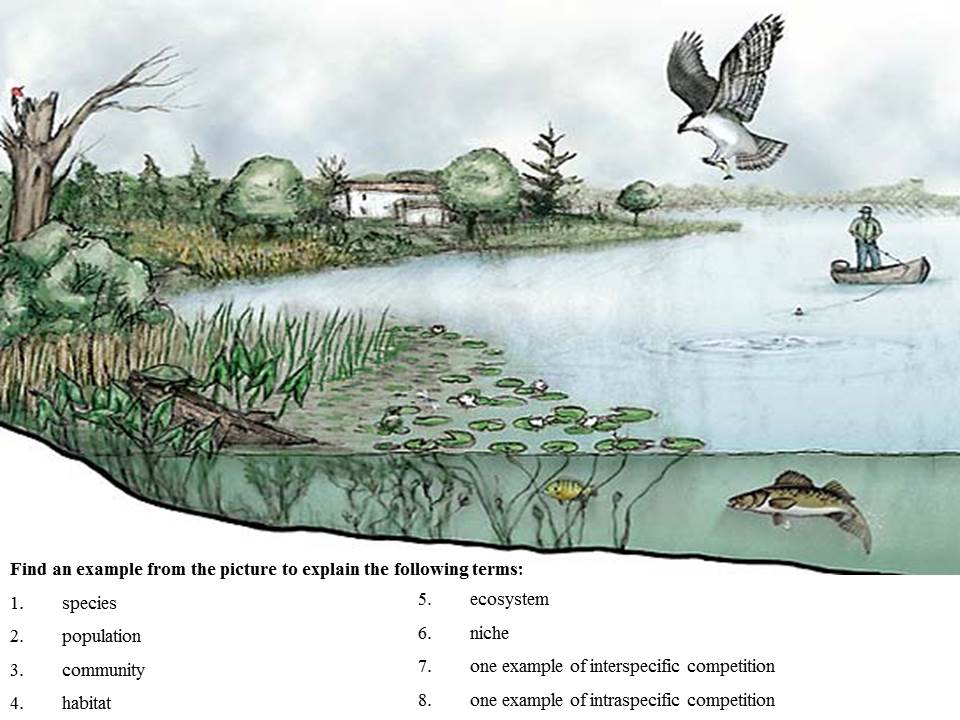Ecological terms teaching resources
Worksheets and lesson ideas to challenge students aged 11 to 16 to think hard about ecological definitions (GCSE and Key Stage 3)
Overview: the study of ecology, like many disciplines within science, is ladened with a vast number of new words. Many of these words represent ideas that cannot be seen e.g. niche, ecosystem and abiotic factors and so require careful teaching and using examples to illustrate these ideas can help. Check out our pages on teaching literacy here. The vocabulary of ecology is trying to describe the different levels of organisation within an ecosystem i.e. organism, species, population and community so that interdependence and competition between these groups can be explored.
Key concept: there are different levels of organisation within an ecosystem that range from individual organisms to the whole ecosystem. Ecologists are interested in studying the relationships both within and between these groups.
From big idea: organisms require a supply of energy and materials for which they often depend on, or compete with, other organisms
Linked knowledge: photosynthesis, evolution, respiration
Misconception [scientific idea]: organisms exist for the benefit of humans [organism exist as a result of evolution]
Where to start?
This ecosystem in a bottle is a useful framework to begin thinking about ecosystems.
Key ecological terms – using the Frayer model
Teaching ecological terms using the Frayer model. This activity is based on the Frayer model to teach vocabulary. You could use this activity at the beginning of any unit on ecology, either to introduce these words or to activate prior knowledge. It can be quite useful to ask students to write down what they think the word means first, before providing them with the definition. Avoid asking students to come up with their own definition. (PDF)
Checking to see if students understand ecological terms
Video clip to assess whether students understand key ecological terms. Students watch the linked video of the Lion King. They identify and list in their books examples to explain the following terms: species, population, community, habitat, ecosystem, niche, abiotic factor, biotic factor, competition. You can adapt this activity to assess a variety of ecological terms.
Key ecological terms – a pond ecosystem
GCSE activity and worksheet on defining key words used in ecology. A picture of a pond is used to support student understanding of key ecological terms. The activity can be used to assess prior knowledge or to strengthen understanding of terms by asking students to relate a definition to an example. (PDF)
Going deeper
- What is meant by interdependence and how is it different to cooperation?
- How is a population different to a community?
- What is needed to create a self-sustaining ecosystem in a bottle?

